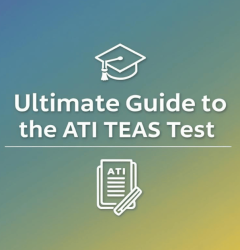- Email: hello@Tutoriffic.com
- Phone: (714) 941 0782

Welcome to tutoriffic.com
How to Spot a Scam When Looking for TEAS Exam Support Online – At tutoriffic.com, we understand the pressure that comes with preparing for the TEAS exam. As a trusted name in online academic support, we offer professional, confidential help tailored to your specific needs—whether that’s handling a challenging exam, completing assignments, or managing your entire online class.
Our services are designed to deliver real results. Whether you’re trying to balance school with work, struggling with complex material, or simply running out of time, our team is here to make the process easier. We’ve helped countless students just like you with everything from TEAS prep to full course support.
Here’s what tutoriffic.com offers:
✅ Help with Online Classes
✅ Exams & Quizzes Support
✅ Essay & Research Paper Writing
✅ Homework & Assignment Assistance
✅ Support for Certification Courses
Work with qualified experts. Get top grades. Stay stress-free.
Understanding the Risks in the Online TEAS Exam Support Industry
As more students turn to online help for standardised tests like the TEAS, an unfortunate side effect has emerged: scams. Fake services prey on stressed students with promises of guaranteed scores, fast turnarounds, or unbeatable prices. These fraudulent platforms can take your money, vanish without delivering, or worse, compromise your academic standing and personal data.
While many students now search for options to pay someone to take my TEAS exam, few understand the dangers of dealing with the wrong provider. Choosing the wrong service could lead to poor results, privacy breaches, or institutional penalties.
At tutoriffic.com, we’ve seen the consequences students face after working with unreliable providers—and that’s why we’re committed to transparency, professionalism, and secure service.
This article outlines how to identify scams and select a safe and effective TEAS support provider.
Red Flags: How to Recognise a Scam
Before choosing any academic help, it’s critical to identify warning signs of a scam. Here are the most common red flags:
-
Unsolicited Messages: Be wary of services that message you out of nowhere with vague claims about “helping with exams.”
-
No Clear Pricing: Scammers rarely list their fees upfront. They’ll quote you after contact, then demand more later.
-
No Tutor Information: Real companies introduce their experts. If there’s no info about who’s helping you, stay away.
-
Poor Grammar or Website Quality: If a site is riddled with typos, errors, or broken pages, it’s a warning sign.
-
Too-Good-To-Be-True Promises: Guarantees like “100% success without effort” are usually dishonest.
-
Pressure Tactics: Scammers often use phrases like “limited availability” or “offer expires tonight” to rush you into making a payment.
-
No Contact Info: A reputable company will always provide a physical address, phone number, and email support.
-
No Refund or Terms Page: If you can’t find a clear policy on refunds or service expectations, that’s a problem.
-
Strange Payment Requests: Be cautious if they request payment via cryptocurrency, gift cards, or anonymous wallets.
-
Fake Testimonials: Generic or overly enthusiastic reviews without names or specifics can’t be trusted.
Protect yourself by staying alert. These signs are often evident in hindsight, but you can avoid them if you know what to look for in advance.
How to Research and Verify a TEAS Support Provider
Avoiding scams begins with thorough research. Here’s how to verify a service before you commit:
-
Search for Their Business Name: Does anything appear on forums or review sites? Check Google, Reddit, and Trustpilot.
-
Explore Their Website: Is it detailed, professional, and easy to navigate? Real businesses care about their online presence.
-
Ask for Tutor Backgrounds: You should know who’s taking your test or helping with your coursework.
-
Look for Terms and Policies: These should be easy to find and explain precisely what you’re agreeing to.
-
Check for SSL Security: Look for “https://” in the website URL—a basic sign of secure encryption.
-
Test Customer Support: Try reaching out before you buy. Real companies will answer quickly and professionally.
-
Read Multiple Reviews: Don’t trust just one. Look for consistency across several platforms.
-
Request Proof of Work: Ask for examples of past results, such as scores, assignments, or customer feedback.
-
Confirm Legal Registration: Is the business registered in a real location? If they’re hiding this, be cautious.
At tutoriffic.com, we provide transparent tutor bios, clear pricing, and a 24/7 support team to guide you through every step.
Why Reviews and Testimonials Matter
Customer feedback can tell you almost everything you need to know. But it has to be real. Here’s how to evaluate it:
-
Use Multiple Sources: Don’t rely solely on what’s shown on the website. Review third-party platforms and social media.
-
Look for Details: Real students mention specific subjects, outcomes, and how the service helped them.
-
Check for Company Responses: Legit providers reply to negative reviews and attempt to resolve complaints.
-
Evaluate Consistency: Are reviews generally positive and consistent over time? Sudden surges of five-star ratings can indicate the presence of fake reviews.
-
Watch Out for Fake Accounts: If all reviews come from usernames like “HappyStudent123” with no profile pics, that’s a red flag.
You’ll find that tutoriffic.com maintains long-term, verifiable feedback from satisfied students across different channels.
The Importance of Reputation and Track Record
Any provider you’re considering should have a proven history. Here’s what to look for:
-
Years in Business: New companies might not be scams, but established ones are usually more reliable.
-
Success Stories: Testimonials and student case studies add credibility.
-
Positive Mentions on Forums: If people discuss the platform positively on Reddit, Quora, or Discord groups, that’s a positive sign.
-
Professional Social Media Presence: Does the platform maintain active, informative social media pages?
-
Partnerships or Features: If the platform is referenced by blogs, student groups, or educational resources, it shows trustworthiness.
With tutoriffic.com, you’re working with a provider that has earned a reputation through consistent, professional service delivery.
Transparency: What Real Services Should Share
A trustworthy academic help provider will never hide essential details. Here’s what they should tell you upfront:
-
Exactly What They Offer: Services should be listed, not hidden behind vague wording.
-
Pricing and Payment: Please be aware of the full cost before agreeing to anything.
-
Tutor Experience: You deserve to know who’s helping you and what they specialise in.
-
Refund Policies: Real companies offer protection in case something goes wrong.
-
Communication Channels: You should be able to talk to someone—via phone, email, or chat—before and after payment.
-
Privacy Policies: Your academic data and personal information should always be protected.
tutoriffic.com is built around transparent service delivery, from quote to final result.
Don’t Trust Unrealistic Guarantees
Scammers say what you want to hear. Real providers are honest—even about limitations.
Be sceptical of claims like:
-
“100% guaranteed score” — No ethical service can promise a perfect grade on every exam.
-
“No effort required” — You’ll always have some level of involvement, even when hiring help.
-
“Instant delivery” — Real experts take time to provide quality, not quick fixes.
-
“Leaked test questions” — This is not only unethical, but also illegal.
-
“Special hacks” or “secret methods” — Success comes from skill and preparation, not shortcuts.
tutoriffic.com focuses on building trust, not offering baited promises.
How to Verify Tutor Credentials
If you’re going to invest in help, make sure the people behind the screen are qualified. Here’s how:
-
Ask for Academic Backgrounds: Real tutors will have degrees in nursing, health sciences, or a related field.
-
Check Experience: Years of tutoring or teaching experience matter—ask to see it.
-
Specialisation: If you’re preparing for the TEAS, your tutor should know that exam inside and out.
-
Reviews on Specific Tutors: See what past students say about working with them.
-
Certifications or Training: Professional certifications add credibility.
-
Trial Lessons: Many reputable services offer previews, introductions, or trial sessions.
At tutoriffic.com, every tutor is vetted and matched to your needs, ensuring quality and subject-matter alignment.
Payment Security: What to Watch For
Never send money to a provider without verifying their payment methods and terms of service. Here’s what to expect from safe platforms:
-
Trusted Gateways: Always use Stripe, PayPal, or major credit cards—never Zelle, crypto, or random apps.
-
SSL Encryption: Check for “https://” and the padlock symbol in your browser.
-
Clear Billing Info: A breakdown of costs should be given before any transaction.
-
No Surprise Fees: You should know what you’re paying for in advance.
-
Refunds and Dispute Options: If something goes wrong, you should be able to obtain a refund.
-
Billing Support: Customer service should be available to answer questions before and after payment.
tutoriffic.com utilises trusted, encrypted payment systems to ensure that your data and money remain protected.
Final Thoughts: Spot a Scam When Looking for TEAS Exam
When it comes to finding support for your TEAS exam, being cautious pays off. You deserve quality help, but that starts with knowing what to avoid and where to look.
If you’re considering whether to pay someone to take my TEAS exam, choose a platform that has real people, proven results, and transparent practices. Choose tutoriffic.com.
We’ve built our reputation on trust, results, and student satisfaction—because your academic future deserves nothing less.


